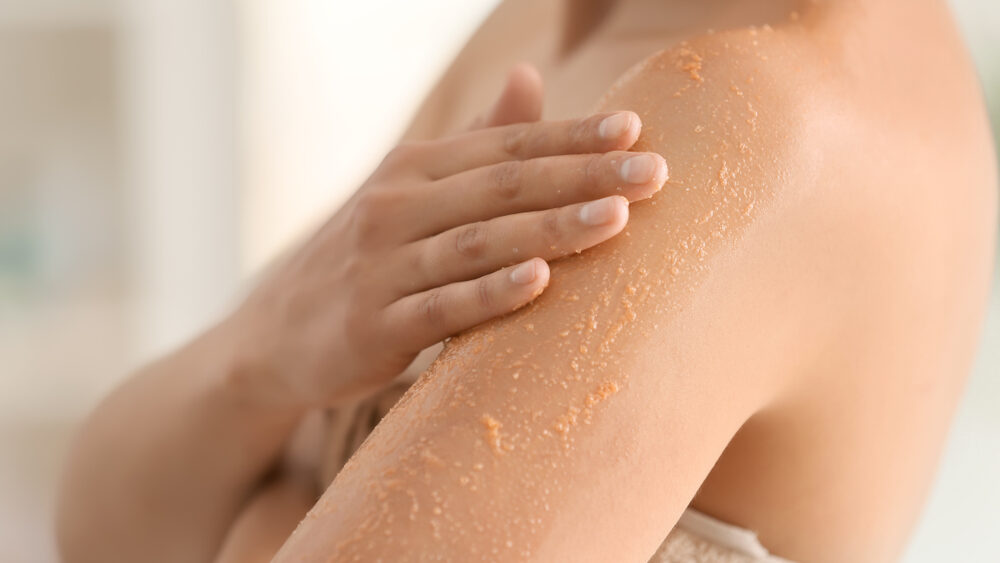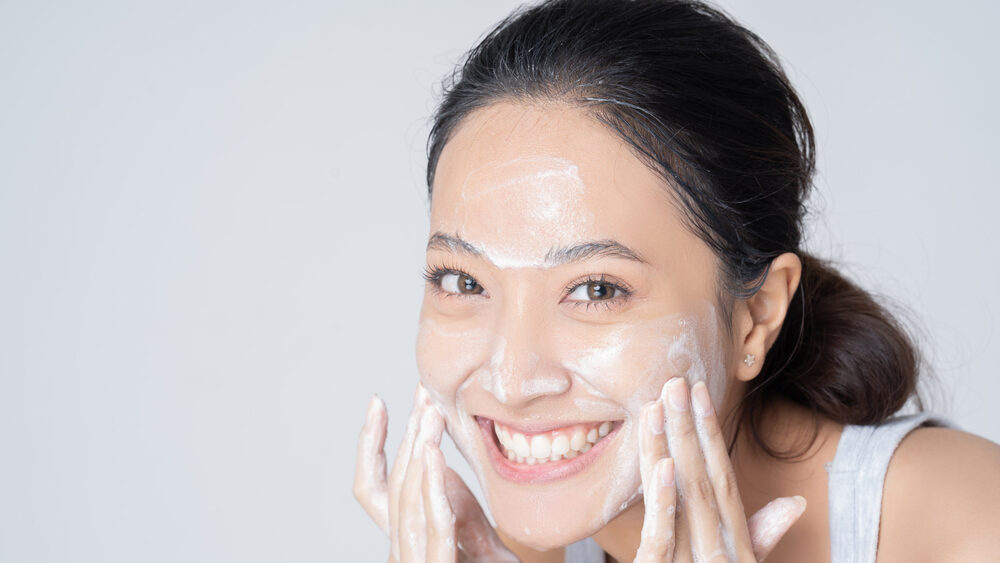Introduction:
In the pursuit of radiant and youthful skin, exfoliation stands as a cornerstone of effective skincare routines. Often overlooked or misunderstood, exfoliation holds the key to unlocking the full potential of your complexion. By gently sloughing away dead skin cells, exfoliation rejuvenates the skin, leaving it smoother, brighter, and more receptive to subsequent treatments. This in-depth guide explores the science behind exfoliation, its myriad benefits, various methods, and seamless integration into your skincare routine.
Understanding Exfoliation:
Exfoliation entails the removal of dead skin cells from the surface of the skin. Our skin naturally sheds these cells, but sometimes the process becomes sluggish, leading to a dull complexion and clogged pores. Exfoliation helps accelerate cell turnover, promoting the emergence of fresh, healthy skin underneath.

Benefits of Exfoliation:
1. Enhanced Radiance: By eliminating dead skin cells, exfoliation unveils the underlying fresh skin, resulting in a radiant and luminous complexion.
2. Improved Texture: Regular exfoliation smoothes rough patches and refines skin texture, making it softer and more even.
3. Unclogged Pores: Dead skin cells can accumulate in pores, leading to blackheads and acne. Exfoliation clears these impurities, reducing the risk of breakouts.
4. Boosted Absorption: With the barrier of dead cells removed, skincare products can penetrate deeper into the skin, maximizing their effectiveness.
5. Youthful Appearance: Exfoliation stimulates collagen production, promoting firmness and elasticity, thereby reducing the appearance of fine lines and wrinkles.
Methods of Exfoliation:
1. Physical Exfoliation: This method involves physically scrubbing the skin with abrasive particles or tools. Typical physical exfoliants comprise scrubs, brushes, and loofahs. While effective, caution must be exercised to avoid irritation, especially for those with sensitive skin.
2. Chemical Exfoliation: Chemical exfoliants utilize acids or enzymes to dissolve dead skin cells. Alpha hydroxy acids (AHAs) such as glycolic acid and lactic acid, and beta hydroxy acid (BHA) like salicylic acid, are popular choices. They work by loosening the bonds between skin cells, facilitating their removal. Chemical exfoliation tends to be gentler and more suitable for sensitive skin.
3. Enzymatic Exfoliation: Enzymes like papain (derived from papaya) and bromelain (from pineapple) break down dead skin cells without the need for scrubbing or harsh chemicals. This method is particularly gentle and ideal for sensitive or reactive skin types.
Incorporating Exfoliation into Your Routine:
1. Frequency: The frequency of exfoliation depends on skin type and the chosen method. Typically, it’s advised to exfoliate most skin types 1-3 times weekly. Those with sensitive skin should opt for gentler exfoliation and reduce frequency accordingly.
2. Preparation: Prior to exfoliation, ensure your skin is clean and makeup-free. This allows for better penetration of the exfoliant and reduces the risk of irritation.
3. Aftercare: Post-exfoliation, follow up with a hydrating moisturizer to replenish lost moisture and soothe the skin. Additionally, apply sunscreen during the day to protect the freshly exfoliated skin from sun damage.
4. Customization: It’s essential to tailor your exfoliation routine to your individual skin needs. Pay attention to how your skin responds to different exfoliants and adjust accordingly. For example, if you find physical exfoliation too harsh, switch to a gentler chemical or enzymatic exfoliant. Additionally, consider factors such as seasonal changes, hormonal fluctuations, and skin conditions like acne or rosacea when determining your exfoliation frequency and method.
5. Patience and Consistency: While exfoliation can deliver visible results, it’s important to practice patience and consistency. Skin cell turnover occurs over a 28-day cycle, so noticeable improvements may take time to manifest. Be consistent with your exfoliation routine, but also listen to your skin’s needs. Over-exfoliation can lead to irritation, inflammation, and compromised skin barrier function. Start slow, observe how your skin responds, and gradually increase frequency or intensity as needed. With patience and dedication, you’ll reap the rewards of a revitalized, radiant complexion that exudes confidence and beauty.

Conclusion:
Exfoliation is a powerful tool in the quest for healthy, radiant skin. Whether through physical, chemical, or enzymatic methods, regular exfoliation offers a myriad of benefits, from improving texture and radiance to preventing breakouts and signs of aging. By understanding the principles of exfoliation and incorporating it into your skincare routine thoughtfully, you can unlock the full potential of your complexion and achieve the glowing skin you deserve.

